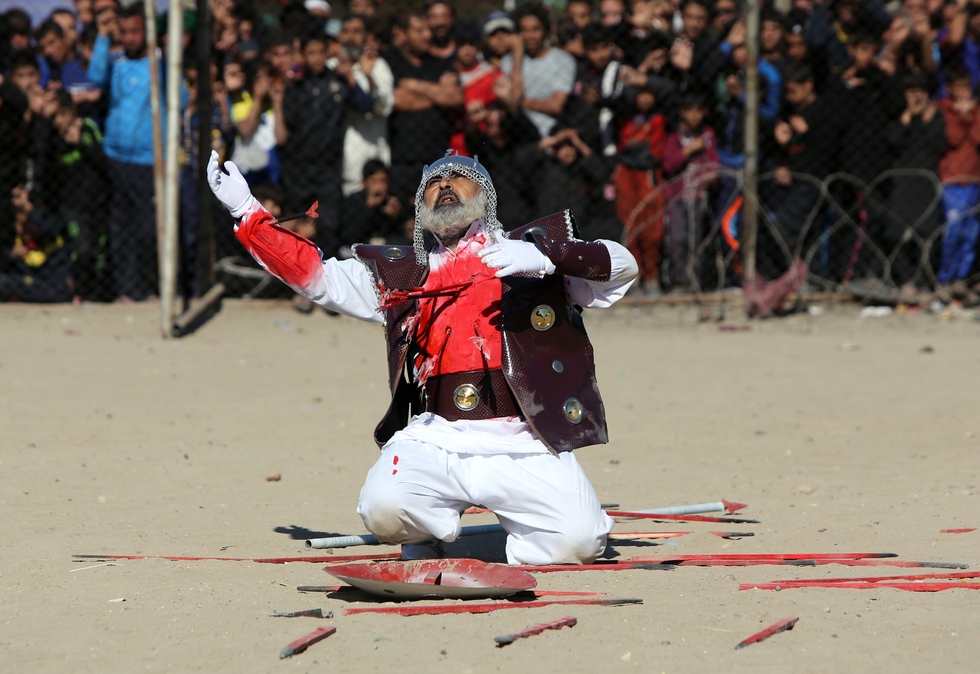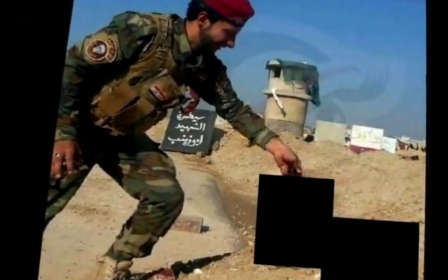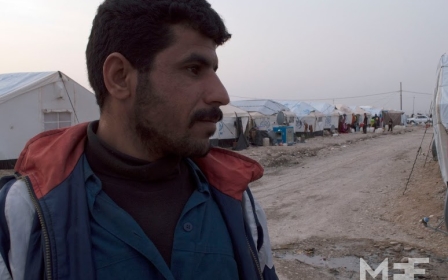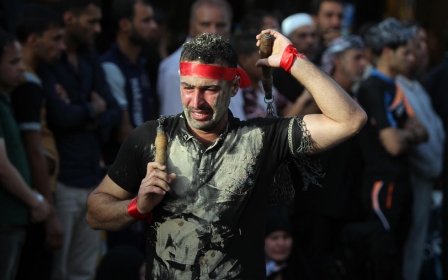What would Hussein do?

Muharram, the first month of the Islamic calendar, is observed across the Muslim world in a variety of different ways, for a number of different reasons and on different ends of the spectrum of joy and sorrow. For the Sunnis, they mark Ashura, literally “the tenth” day, with fasting on the day and the day before it in order to show gratitude toward God for destroying Pharaoh and saving Moses and the faithful. For the Shia, it is a time of sorrow and mourning, expressed in different ways, and Ashura is considered the day that Hussein bin Ali, the grandson of the Prophet Muhammad, was killed at the Battle of Karbala by the forces of Caliph Yazid bin Muawiyya. Hussein is revered by both Sunnis and Shias. Although this tragic event happened about 1,400 years ago, it is sadly being used as an excuse to perpetuate the spiralling cycle of sectarian killing and murder across the Middle East.
Secular commentators and anti-religion advocates tend to point to religion as a leading cause of violence (Richard Dawkins in The God Delusion, for instance) and, on face value, they would appear to have a point. In recent days, Shia mourners have been gunned down by terrorists in Saudi Arabia and Iran, the Israelis and Palestinians are eyeing up the prospects for a Third Intifada in the Holy Land, and the war against the misnomer to end all misnomers, the Islamic State (IS), continues with the Russian Orthodox Church’s blessing. I would personally argue that people kill people for all manner of ideologies, including rabid secularism: just take a look at Stalin, or Turkey’s experience with a military junta standing as “guardians” of Kemalist secularism. Nevertheless, people do die and kill for their religious beliefs, irrespective of whether or not their beliefs have anything even tangentially related to the religion in question.
For instance, rather than extracting meaning from the death of Hussein at the Battle of Karbala, universally acknowledged as a tragedy by all Muslims, and learning from it to ensure that such intra-communal violence, politicking and division never leads to people needlessly losing their lives again, the event itself has been callously politicised. Iraqi politicians in particular have become infamous for manipulating historical events, and laying the blame at the door of an entire community who had no influence on who lived or died over a millennium ago. A glaring example of this is in how former Prime Minister Nuri al-Maliki described peaceful, largely Sunni, protesters in 2013. In a televised speech, Maliki, with full knowledge of what he was sanctioning with his words, said that the “crime that was perpetrated against Hussein has not ended” and that “those who killed Hussein…are present here today, and the champions of Yazid and the champions of Hussein are clashing once again”.
With politicians such as Maliki holding positions of the highest power and authority in Iraq making religiously charged speeches like that, is it any surprise that sectarian Shia militiamen like the self-titled Abu Azrael (the Angel of Death) can literally slice strips of human flesh from a suspended Sunni with a katana, as though he was a donner kebab? Quite contrary to the romanticisation of a man who is quite possibly a war criminal commonly found in the press, Abu Azrael has even gone on television and said that anyone who criticises the Shia Popular Mobilisation Unit (PMU) “is a terrorist”, which would of course include many commentators and analysts the world over. In Iraq, terrorism is a capital offence. These problems have not been resolved with Maliki’s removal from executive power, as the aforementioned human donner kebab incident happened on Prime Minister Haider al-Abadi’s watch, who was also photographed kissing Abu Azrael from his head, a sign of the deepest respect in Arab culture.
The religious authorities in Iraq, Sunni and Shia, have a joint responsibility to denounce divisive and dangerous declarations by politicians. Although IS of course has its own ideologues who promote hatred, death and destruction on all (not exclusively against Shia), mainstream Sunni religious authorities have denounced IS, condemned their actions and decreed their “state” to be illegitimate. On the other hand, and with notable exceptions such as Ayatollah al-Sarkhi who stood against Maliki’s rampant sectarianism and was attacked with gunships, Ayatollah Sistani, whom the PMU owe their existence to, said nothing to denounce inflammatory speeches that led to the deaths of protesters. The message here is that if you openly defy an Iranian-backed politician such as Maliki, Shia religious authority or not, you will be targeted. In Iraq, as in many other places in the world, power has no sect or creed, and you will be silenced if you stand against power holders, all justified by, and in the name of, propagating the continuing vengeance for Hussein’s death.
As Muslims observe Ashura, they should first ask themselves – would Hussein approve of all of this bloodshed in his name? Or would he turn towards God, ashen faced, seeking refuge from those who would abuse his memory by unleashing untold horrors in the name of avenging him? Hussein challenged the dominant power of his day because he believed it to be the right thing to do, and because he felt there were those who were oppressed and he had a responsibility to stand for them. He certainly did not commit any atrocities and decide to cut strips of meat from the bodies of his enemies, nor did he attack and set ablaze the neighbourhoods of those whom he disagreed with, as occurred to little international media fanfare in al-Adhamiya in Baghdad last May.
If Hussein was alive today, he would have stood against the tyranny of the tyrants running rampant across the Middle East. He would have stood with the Syrian people against the Assad dynasty, with the persecuted Baluchis and Arabs in Iran, and with all of the oppressed around the world. I am sure the first thing he would say today to those who believe they are avenging him is, “Not in my name”.
- Tallha Abdulrazaq is a researcher at the University of Exeter's Strategy & Security Institute, and winner of the Al Jazeera Young Researcher Award. He blogs at thewarjournal.co.uk and tweets from @thewarjournal
The views expressed in this article belong to the author and do not necessarily reflect the editorial policy of Middle East Eye.
Photo: An Iraqi Shia man performs during the reenactment of the Battle of Karbala as part of the Ashura commemorations on 4 November, 2014 in the capital Baghdad (AFP).
New MEE newsletter: Jerusalem Dispatch
Sign up to get the latest insights and analysis on Israel-Palestine, alongside Turkey Unpacked and other MEE newsletters
Middle East Eye delivers independent and unrivalled coverage and analysis of the Middle East, North Africa and beyond. To learn more about republishing this content and the associated fees, please fill out this form. More about MEE can be found here.





